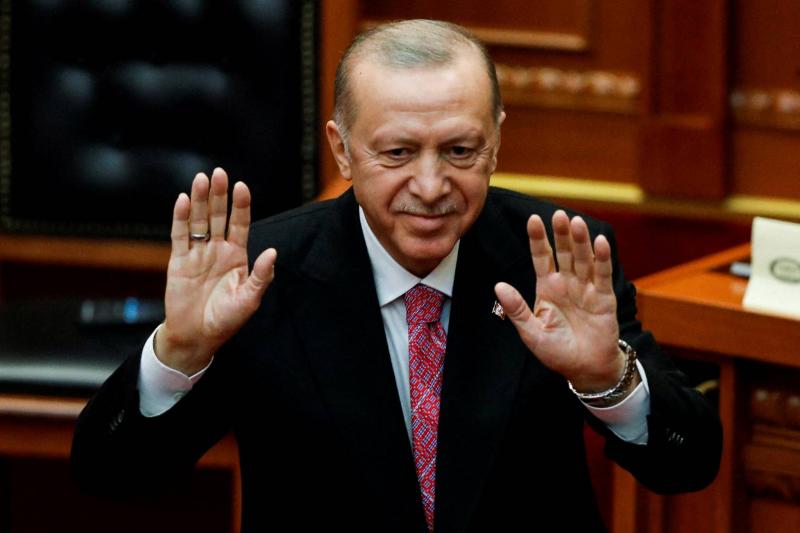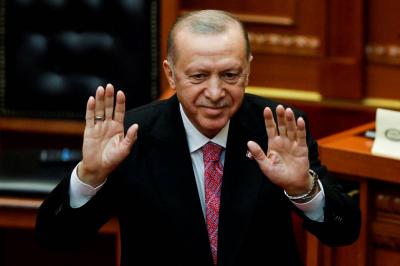Polls in Turkey suggest that elections may require a runoff, with some indicating that Erdogan is not in the lead. This reflects the depth of the cost-of-living crisis exacerbated by his unconventional economic policies.
With his hold on power at risk, Turkish President Recep Tayyip Erdogan is leaving no stone unturned in his election campaign, facing what may be his toughest political test yet as he seeks to protect his legacy from bold opposition. Erdogan, the son of a sea captain, is facing severe political headwinds ahead of the elections scheduled for May 14, as he grapples with being blamed for an economic crisis that is gripping the country. The devastating earthquake in February has further exposed his government to accusations of slow response and negligence in enforcing building regulations that could have saved lives.
While polls show strong competition, critics compare the current conditions to those that brought his Islamic-rooted Justice and Development Party to power in 2002, during a time also marked by high inflation and economic turmoil. Erdogan's opponents promise to repeal many of the changes he has implemented in Turkey, which were aimed at creating a religious and conservative society with regional influence. However, such significant risks are not new to Erdogan, who has previously served time in prison for reciting a religious poem and survived a military coup attempt in 2016 when rogue soldiers attacked the parliament and killed 250 people.
With much at stake in both the presidential and parliamentary elections, the veteran politician, who has won over ten elections, is targeting his critics with typical fervor. Erdogan accuses the opposition of seeking to exploit disaster, having made several visits to the earthquake-affected area where over 50,000 people lost their lives, pledging to rebuild swiftly and punish those who violated building regulations. In the lead-up to the elections, Erdogan filled his agenda with celebrations of industrial achievements, including the launch of Turkey's first electric car and the commissioning of the first amphibious assault ship, built in Istanbul to carry Turkish-made drones.
Moreover, Erdogan expedited the delivery of the first shipment of natural gas to a marine terminal from a reserve discovered in the Black Sea and promised to provide free natural gas to homes, while inaugurating Turkey's first nuclear power plant in a ceremony that included Russian President Vladimir Putin online. Major media outlets have extensively covered Erdogan, while state-run media has paid little attention to his main electoral rival, Kemal Kilicdaroglu, provoking opposition accusations of unequal opportunities.
His war against the main opposition alliance includes allegations that the coalition receives support from the Kurdistan Workers' Party (PKK), which has been in rebellion since the 1980s, resulting in over 40,000 deaths. In response, Kilicdaroglu, who has the backing of the pro-Kurdish Peoples' Democratic Party, defended Kurdish rights and accused Erdogan of treating millions of Kurds as terrorists. In his efforts to regain popularity among conservative voters, Erdogan also made anti-LGBT comments, labeling LGBTQ rights as a "deviant" concept that he would fight against.
Unconventional Economic Policies
Polls indicate the possibility of needing a runoff in the elections, with some showing that Erdogan is not leading, pointing to the depth of the crisis related to the cost of living driven by his unconventional economic policies. Authorities launched a campaign of interest rate cuts to address high inflation with the aim of boosting economic growth, but this led to a currency collapse in late 2021 and worsening inflation. Despite signs that his party could revert to more traditional policies, Erdogan last month affirmed that low interest rates would continue as long as he remains in power and that inflation would decrease as a result.
The economy was a cornerstone of Erdogan's rule during his first decade in power when Turkey experienced steady prosperity, marked by new roads, hospitals, schools, and rising living standards for its 85 million inhabitants. Seda Demiralp, head of the International Relations Department at Ishik University in Istanbul, noted, "If he loses, it will damage his image. But for those who love him, they will not abandon him easily."
Turkish citizen Halime Duman stated that high prices had made goods in many grocery stores unaffordable for her, but she still believed Erdogan could resolve her issues. "I swear Erdogan can solve it with a gesture," she said in a market in downtown Istanbul.
Humble Roots
The Turkish president comes from humble beginnings in a poor neighborhood in Istanbul, where he attended an Islamic vocational school and entered politics as a youth leader in a local party. After serving as mayor of Istanbul, he rose to national prominence as the head of the Justice and Development Party and became Prime Minister in 2003. Under his leadership, the Justice and Development Party managed to tame the Turkish military, which had ousted four governments since 1960, and in 2005 began negotiations to fulfill a decades-long ambition of joining the European Union—a step that later stalled significantly.
Initially, Western allies viewed Erdogan's Turkey as a vibrant mix of Islam and democracy that could serve as a model for Middle Eastern countries struggling to shed authoritarianism and stagnation. Yet, his attempts to impose greater control have led to polarization within the country and raised concerns among international partners. Supporters viewed this as merely rewarding a leader who reinstated Islamic teachings at the core of public life and defended the working-class religious population. Conversely, opponents saw this as a deepening of authoritarianism by a leader addicted to power.
After the coup attempt, authorities launched a crackdown, detaining over 77,000 awaiting trial and dismissing or suspending 150,000 civil servants. Press freedom organizations have claimed that Turkey has become the largest jailer of journalists in the world for some time. Erdogan's government cited the crackdown as a response to threats from coup sympathizers as well as the Islamic State and the PKK.
Internally, an expansive new presidential palace on the outskirts of Ankara stands as a landmark of Erdogan's consolidated power, while externally, Turkey has taken a firmer stance with military interventions in Syria, Iraq, and Libya, often deploying Turkish-made military drones effectively. The drones also helped Ukraine defend against the Russian invasion. However, these interventions have attracted few allies, and amid a struggling economy with the countdown to elections underway, Erdogan has sought to reconcile with regional rivals.




